Milk market in China
According to research by Euromonitor International, China is the second largest dairy market after the United States. But it is estimated that by 2022 it will reach the United States becoming the largest dairy market in the world.
The most consumed products in China are:
- fresh milk
- powdered milk
- yogurt
Regarding milk market, milk scandals and increased purchasing power have increasingly exposed Chinese consumers to international brands.
Need a cost effective TP (Tmall Partner) to sell in China?
We are an Official Tmall Partner e-commerce Agency. Our Services: E-Commerce, Search Engine Optimization, Advertising, Weibo, WeChat, WeChat Store & PR.
In 2018, among all dairy products, milk powder imports contributed almost 70% of the value of dairy products imports to China. This is therefore by far the most consumed by the Chinese.
The milk market, especially the powder one is, therefore, a high profitable market, but how to enter in this huge market?
The 2008 Chinese milk scandal
The Chinese milk scandal of 2008 was a food security incident in China. The scandal involved milk and infant formula along with other materials and food components adulterated with melamine. Of approximately 300,000 victims in China, six children died of kidney stones and other kidney damage and around 54,000 children were hospitalized.
The Sanlu Group, one of the largest milk producers in China has been identified as the main culprit. But as the scandal unfolded, more Chinese dairy companies were involved.
Indeed, the scandal not only damaged the reputation of Chinese food exports, but also dealt a devastating blow to the boom in the domestic dairy sector. The baby milk market has increased the demand for foreign products. After this scandal, over 100 foreign brands entered the Chinese market.
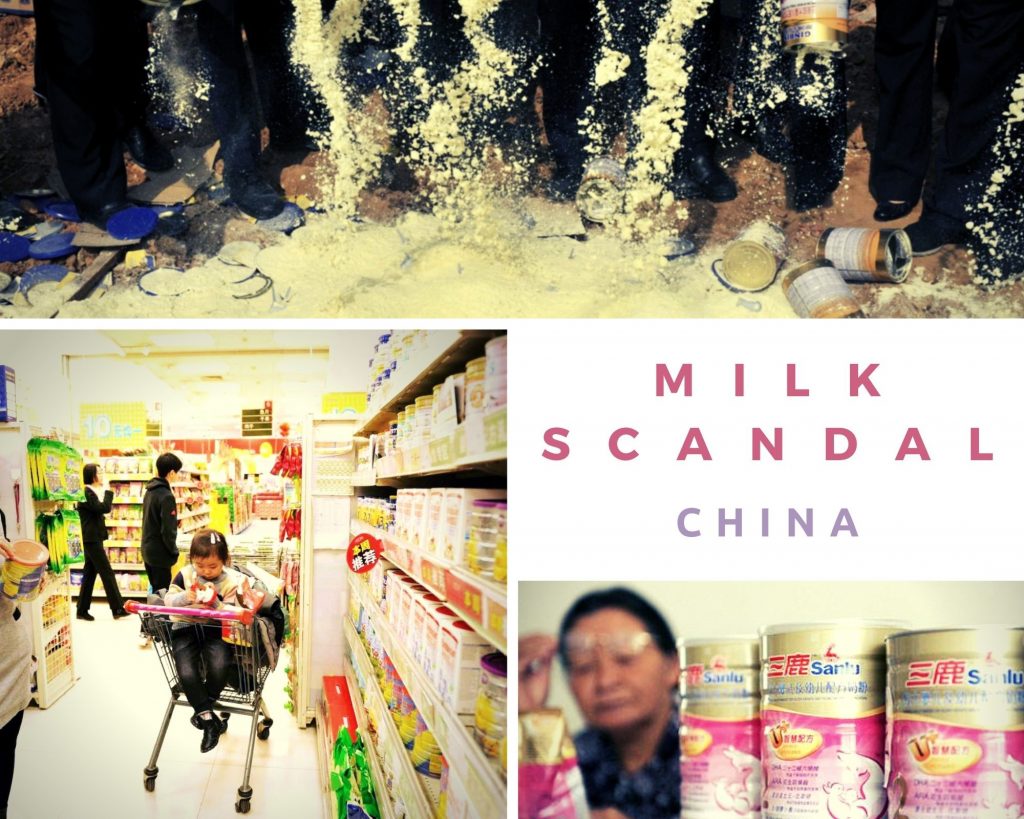
The 2020 new scandal in China
In May, news surfaced that a handful of children had been exposed to harmful substances caused by a new protein-based powdered milk drink. The Weibo hashtag #郴州大头娃娃事件 (Chenzhou big head baby incident) generated over 70 million views.
Powdered milk was a best-selling product tailored to children who were allergic to normal milk. Parents of five children appealed to local authorities claiming that their children suffered from eczema, severe weight loss and rickets.
Local authorities announced that they would conduct a thorough investigation of the matter. But, The Chenzhou milk powder scandal frightened parents in China, reminding them of the 2008 melamine milk powder scandal in which over 300,000 children were suffering from kidney problems.
Chinese milkpowder buyers Love foreign brands
Product quality scandals have led many Chinese parents to buy foreign milk powder products from the past twelve years. Consumer confidence in Chinese dairy products remains extremely weak. Over half of the Chinese infant formula market is dominated by foreign brands and in some cities the percentage reaches 80%.
In a desperate move to strengthen the domestic dairy industry, China has enacted new rules that forbade the import of dairy products from unregistered foreign producers.
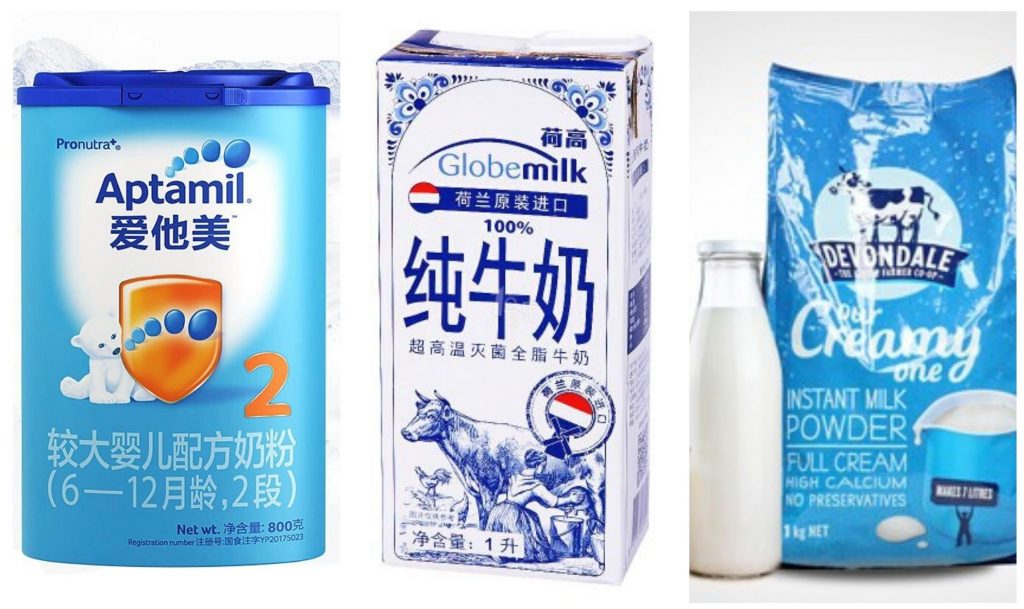
What are the ways to import Milk Powder and avoid taxes in China?
Daigou “Surrogate Shopping” is an emerging form of cross-border exporting in which an individual or a group of exporters outside China purchases goods for consumers in China, in order to use loopholes illegally or legally to avoid import taxes imposed on goods from abroad. In fact, items brought back to China were often declared as personal items to avoid taxes.
Many Chinese parents turned to Daigou vendors for imported milk. These products are purchased from Hong Kong, Australia or abroad and brought back to the mainland to be resold at a higher price. Many Chinese parents believe that the prices, despite higher prices, are worth the quality of the product.
Covid-19 and the “New ecommerce law” create import problems for Daigou
Daigou sellers today are facing a serious problem as the Covid-19 crisis has paralyzed their ability to supply consumers. Why?
- The number of available cross-border flights has been curtailed
- sea shipments have serious logistical problems, citing an increase in delivery times and customs problems.
- China’s new e-commerce law, which came into effect at the beginning of 2019
China’s new e-commerce law
On January 1, 2019, China officially rolled out a new e-commerce law to directly regulate Daigou activities. Under the new law, all Daigou participants will be legally required to register as e-commerce operators and acquire licenses both in China and in the country in which they purchase, making their activities subject to taxation both in China and in the region in which they bought goods.
Cross-border e-commerce is the new opportunity for brands
Due to the Covid-19 crisis and the new e-commerce law, Daigou sellers could completely exit the sector, paving the way for foreign retailers and pharmacies to sell in China through cross-border e-commerce. Due to the increase in costs and risks, more businesses could move towards cross-border e-commerce, where retailers and international brands ship the products one by one directly to Chinese consumers.
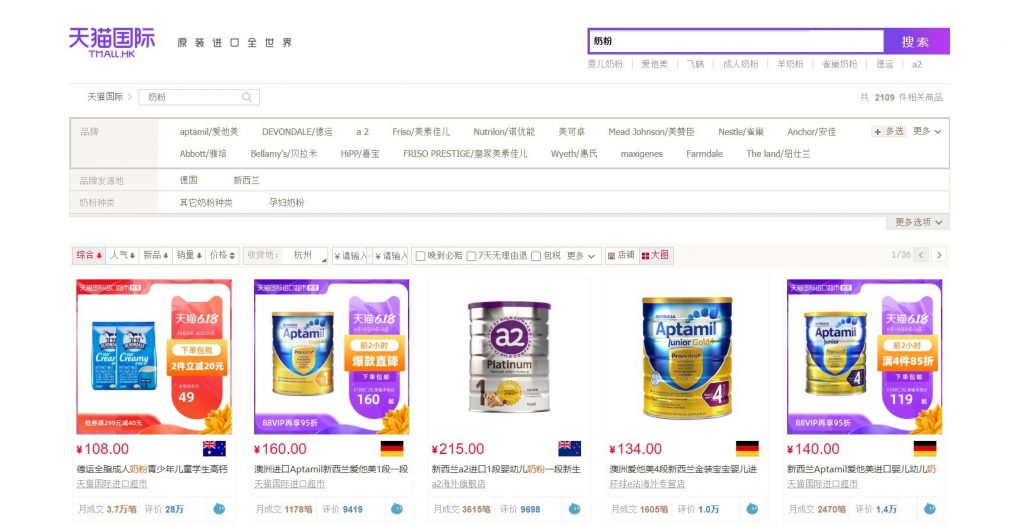
How can a brand sell milk powder through cross-border e-commerce channels?
Before we get to understand, what are the various cross-border e-commerce platforms on which companies can sell their products, we need to understand how to best sell on these platforms.
How to best sell on cross-border e-commerce platforms?
A good e-reputation is crucial to sell in China
In China more than everywhere else the reputation of a brand is what will make the difference. Chinese consumers don’t trust new brand and are not risk taker, resulting in a very low conversion rate. Therefore, e-reputation should be the base of your marketing strategy when doing cross-border e-commerce in China, whatever platform you choose.
How to create a good e-reputation in China? How to generate leads?
There are several ways to increase your e-reputation and generate leads, you can choose one of them, but We recommend a multichannel strategy to create a strong and faster e-reputation.
LOCALIZATION MAKE YOU VISIBLE IN CHINA
BAIDU SEO
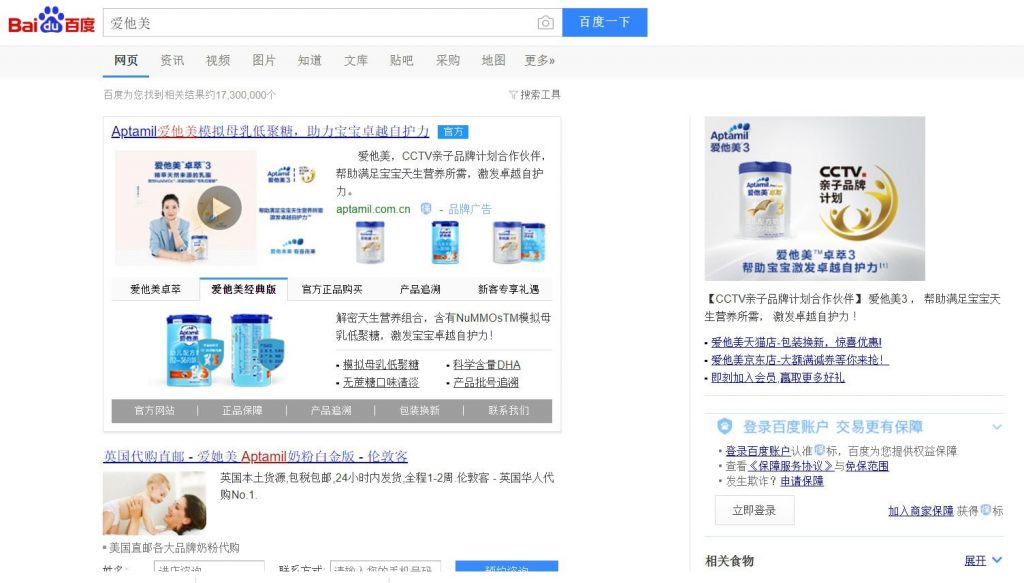
If you want to break into the Chinese market, Baidu SEO is a must step and a must-have. Baidu is the Chinese search engine and one of the major place where Chinese people go to find company’s information.
To rank, your website needs to:
- be hosted in China
- get ICP license
- be in Mandarin
Baidu knows only Mandarin and gives priorities to websites hosted in China. The website culture is different, therefore you need to adapt your content/design to the locals expectations.
BAIDU SEM
Baidu PPC is a great tools to use as a first step in your global marketing strategy. It gives you credibility, because if you can make Baidu ads, it means you are a real brand and also bring your first visitors to your website.
In a second step, it will work great combine to a good SEO strategy. Both channel will support each other in a sustainable way.
PR & FORUMS CREATE WORD OF MOUTH
PR is one of the most cost-effective solution. It is a basic of marketing where the right people talk about you. PR is a good way to build your credibility.
Complete your PR efforts and strengthen your credibility using forums (like Zhihu) and KOLs (Key Opinion Leaders) to talk about you. KOLs and communities are powerful and widely listen to the Chinese internet, in fact, their opinion matters the most.
SOCIAL MEDIA
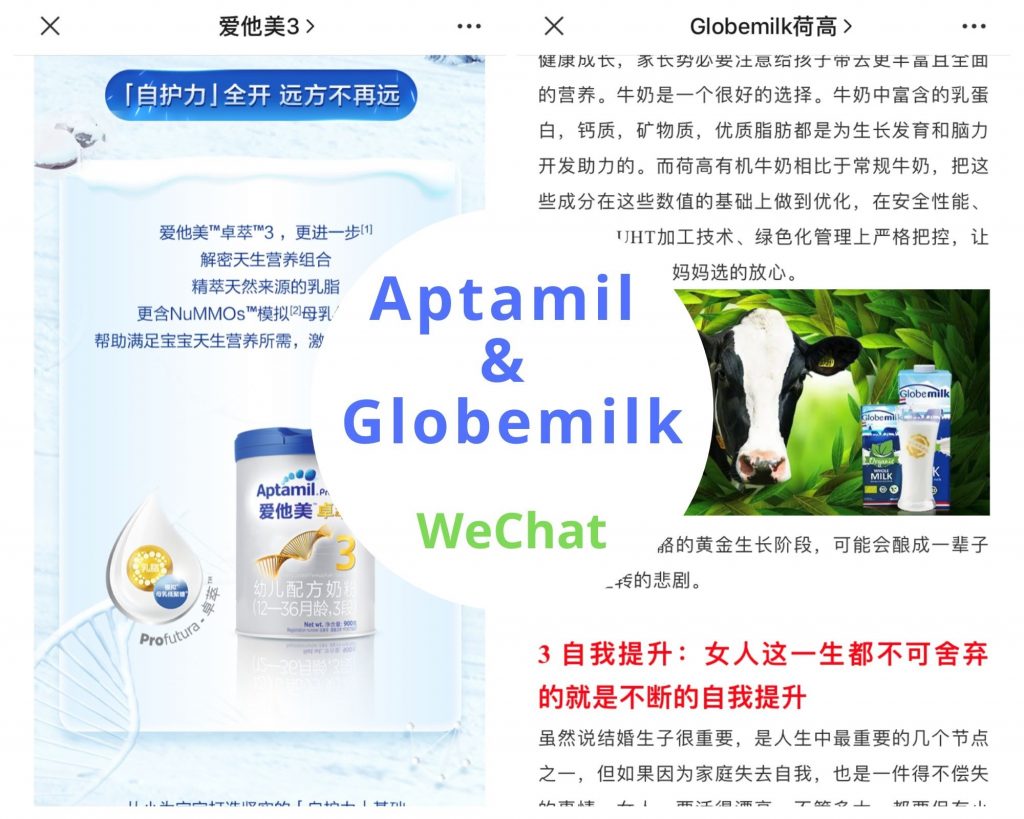
Social media in China are the best place to work on your branding and storytelling.
Through social media brands can:
- Increase visibility
- Increase brand awareness
- Create engagement through word of mouth
- Increase sales through social e-commerce platforms like Wechat, Xiaohongshu, Pinduoduo.
The most used Chinese social media are Wechat, Weibo and the short-video platform Douyin.
To reach all these benefits a brand should open a verified account on these platforms, create post or short-video about the company’s value and products, communicate with consumers.
Cross-border e-commerce channels
Cross-border websites allows consumers to buy products online from merchants located abroad. This kind of online shopping is more and more popular in China.
With the cross-border e-commerce, foreign products can be sold in China without having to face the long and complex authorization procedure with the competent local authorities, which is mandatory for export and sale through traditional channels.
What are the main cross-border e-commerce in China?
- JD Global
- Tmall Global
- Ymatou
- Kaola
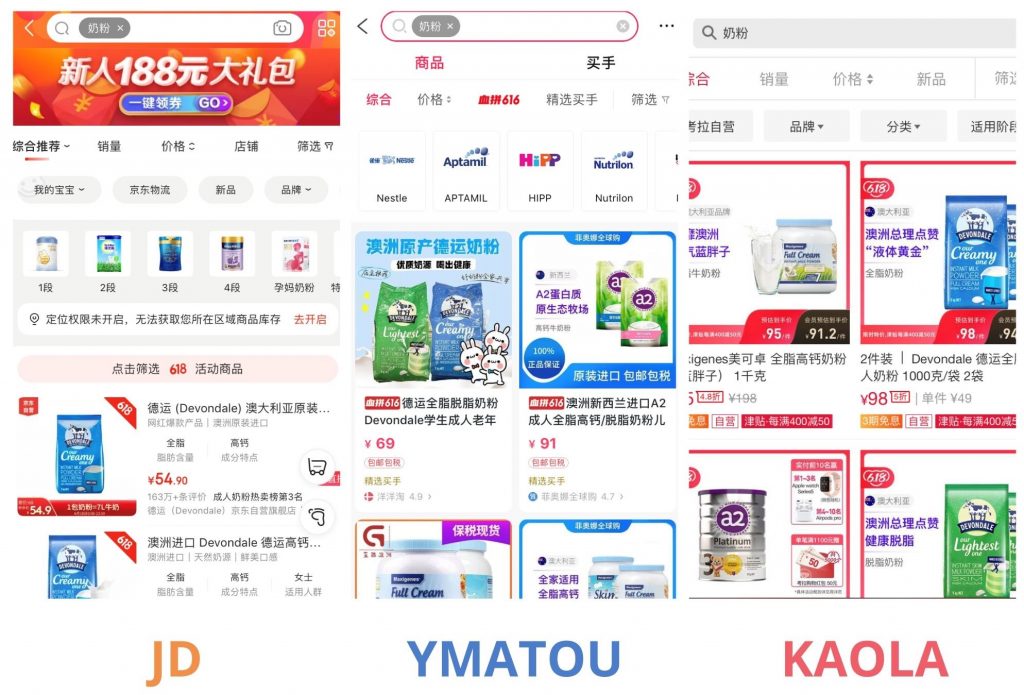
Sell Milk Powder JD Global
JD Worldwide, the multilingual cross-border global sales platform allows merchants to sell directly to Chinese consumers despite not having a physical presence in China.
JD Worldwide operates as a large online shopping center that houses showcases of foreign brands and several national and regional pavilions that collect the excellence of the various countries.
Tmall Global a great place to sell milk powder in China
Tmall Global allows international businesses with no physical presence in mainland China (that is you don’t need to have a physical store or a warehouse, you don’t need to be registered with the Chinese authorities, and you also don’t need to have a Chinese business license) to set up an online store on the platform and tap into a huge and profitable consumer base who are excited about online shopping.
YMATOU
Ymatou was founded in 2009, it is a cross-border e-commerce platform for C2C and B2C products.
It hosts over 80,000 buyers located in 83 countries. It can be said that it was the first platform to believe and invest in cross-border e-commerce. Not only that, the company also has its own logistics arm which, collaborating with the giant SF Express, operates in 15 countries thus allowing cross-border orders to arrive at their destination in just five days.
KAOLA: Leader of crossborder ecommerce in China
The platform provides online sales of various imported products via cross-border e-commerce.
All foreign products on the platform are managed and purchased directly from local suppliers through various factories around the world. The goods are shipped directly from the country of origin and stored in the customs warehouses in China under the control and surveillance of the customs office and the CIQ (China exit-entry Inspection & Quarantine Bureau) or the office that inspects and monitors the incoming and outgoing products that pass through the Chinese border.
Kaola also offers various promotions including daily offers, member offers, special coupons and more, which attract many Chinese consumers looking for foreign goods and affordable prices.

Do you want to know more about How to use Chinese e-commerce platforms to boost sales? Contact GMA a digital marketing agency, specialized in the Chinese digital market.
Read also:

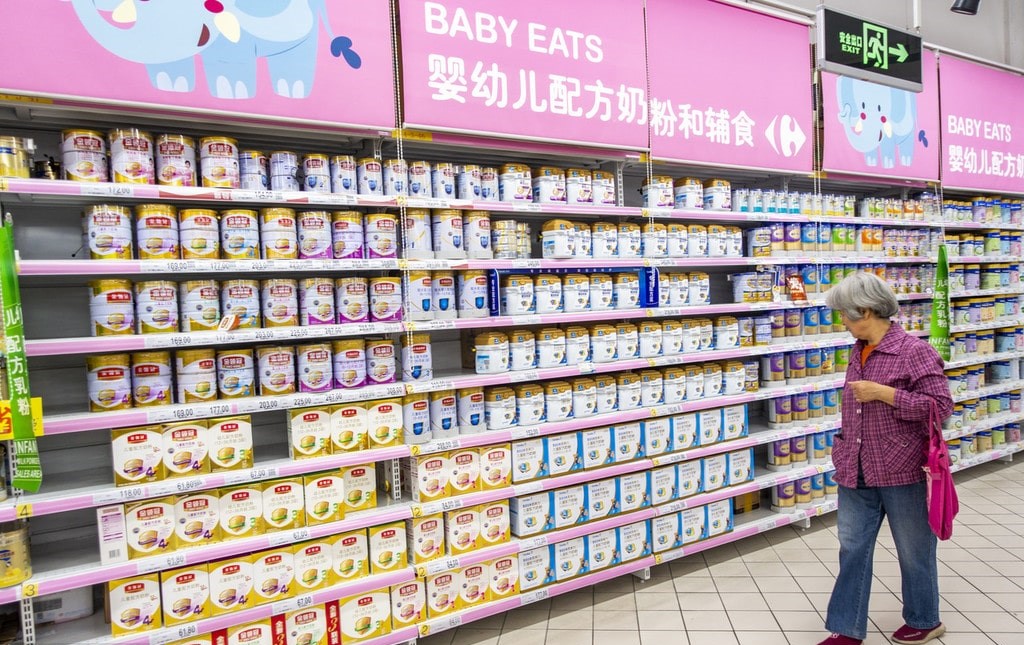






One Comment